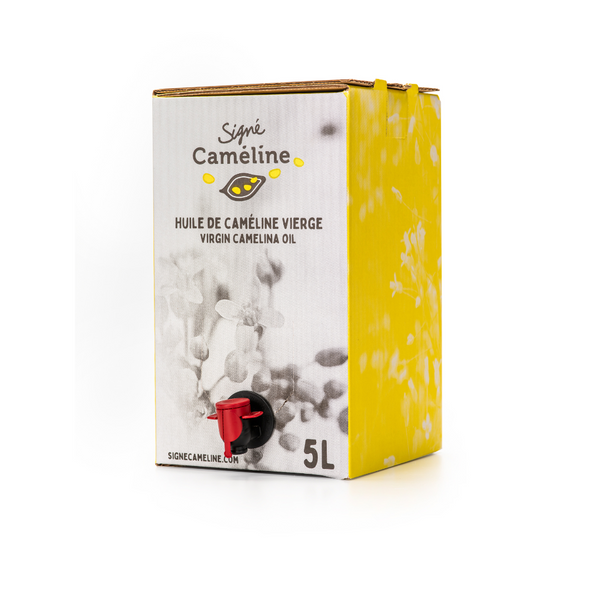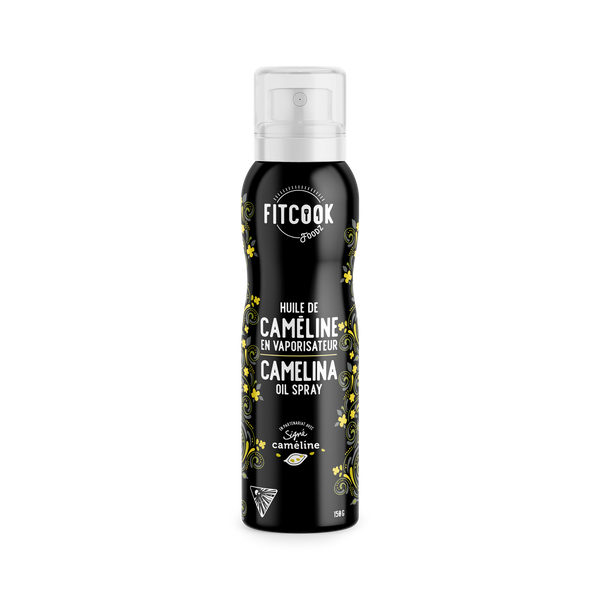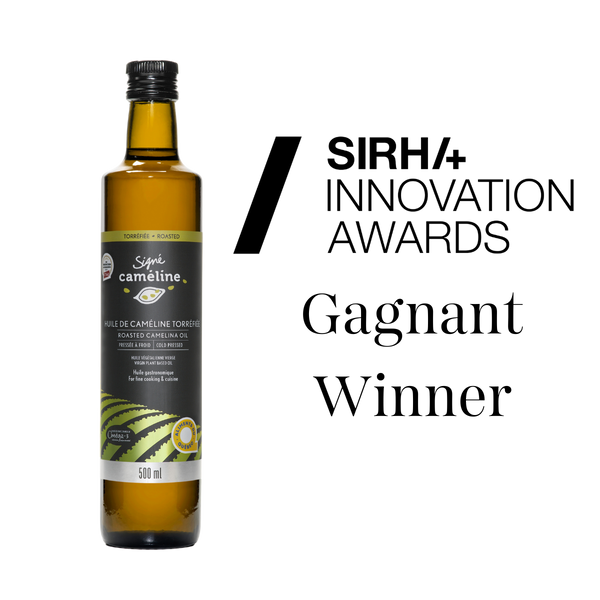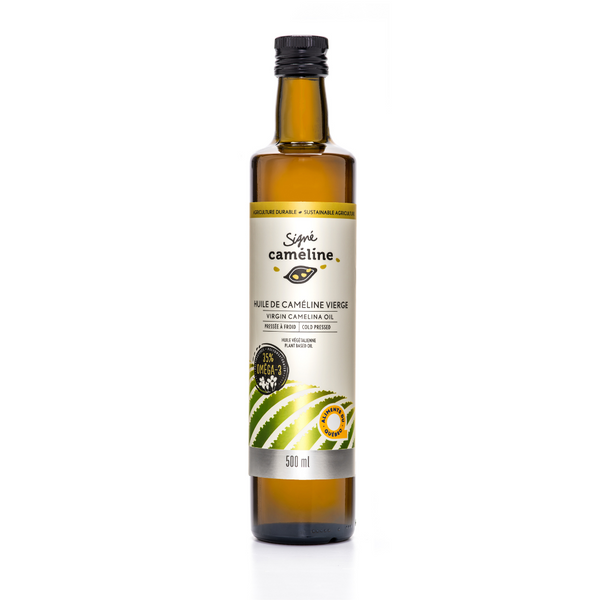Our mission at Oliméga is to take care of the earth and biodiversity.
•Posted on August 20 2024

In a context where sustainable and eco-responsible agriculture is becoming a necessity to meet current environmental challenges, at Oliméga we are proud to highlight the agricultural production of camelina. This plant, with exceptional potential, fits perfectly into our vision of agriculture that respects the planet and its ecosystems.
Increased biodiversity and soil health
The introduction of camelina, a cruciferous plant, into crop rotations has a significant impact on biodiversity. This crop helps diversify plant species in fields, which is crucial for maintaining a healthy and resilient agricultural ecosystem. Increasing biodiversity is not only beneficial for the environment, but it also improves agricultural productivity and yields of subsequent crops. For example, producers observed a yield increase of one metric ton per hectare for corn grown the year after camelina. This is evidence of the positive effect of camelina on soil structure and fertility, contributing to more sustainable agriculture.
An asset for bees and the fight against erosion
Camelina also plays a key role in preserving bee populations. Its early flowering at the beginning of the season provides a valuable source of pollen for bees, at a time when few other plants are in flower. This contribution is essential in the current context, where bee populations are threatened by various environmental pressures.
In Montérégie, we have introduced a fall sowing practice, carried out in early September for a harvest in late June of the following year. This technique allows us to maintain plant cover throughout the winter, thereby reducing soil erosion. In addition, it eliminates the need for field interventions in the spring, thus helping to preserve healthy and living soils while reducing the carbon footprint of our operations.

A culture adapted to northern climates and resilient to climate change
Camelina is a short-season northern plant, perfectly adapted to more northern regions such as Témiscamingue and Abitibi. Its ability to tolerate late spring frosts, which are becoming more frequent with climate change, makes it a crop of choice for agricultural producers in Quebec.
Commitment to regenerative and non-GMO agriculture
Our commitment to responsible farming practices is also reflected in our approach to crop protection. Camelina is grown without seed treatment and without the use of pesticides as a preventative measure. The few treatments that are necessary are applied only to treat the plant when necessary, thus minimizing the impact on the environment.
In addition, camelina cultivation is part of a regenerative agriculture approach, aimed at restoring and improving the health of soils and ecosystems. We are also proud to guarantee that our camelina is certified non-GMO, thus offering consumers an authentic and natural product.
A sustainable transformation process
The pressing of our camelina seeds is carried out mechanically by screw, using a cold pressing process that does not require any use of water, thus preserving natural resources. Approximately 30% of the precious oil is extracted from each seed. The residue of this pressing, the camelina cake, is then revalued in order to ensure optimal use of the raw material, thus eliminating any form of loss. This by-product, rich in nutrients, is still little known, but has considerable potential. It is already sought after as animal fodder and as a food supplement, paving the way for many future applications.




